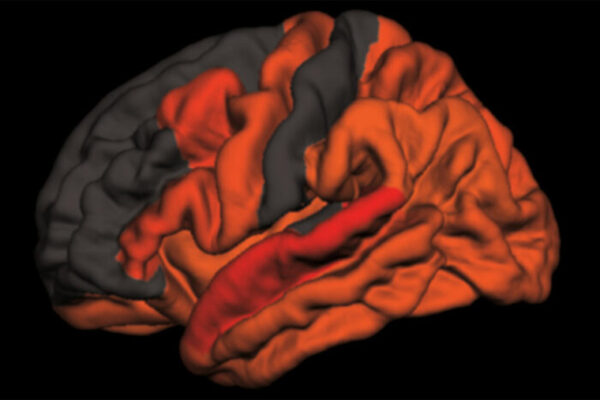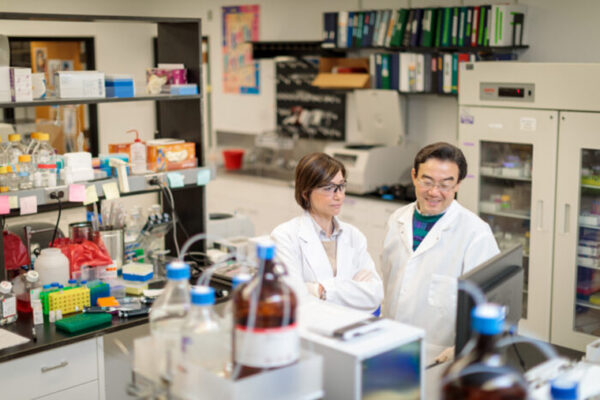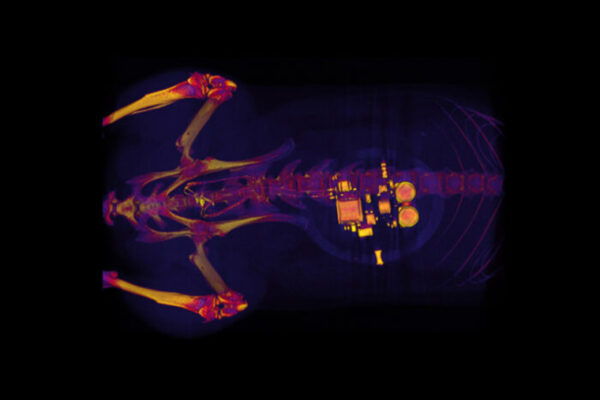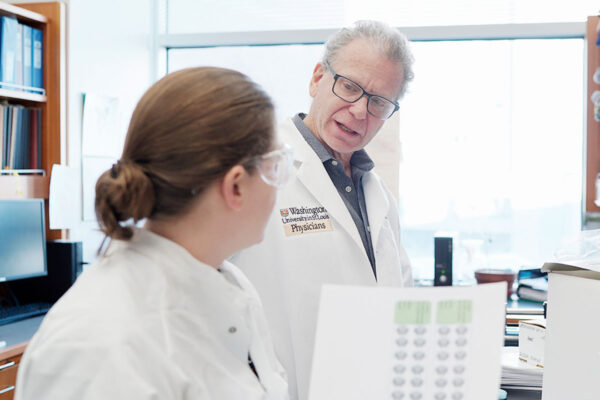New strategy may curtail spread of antibiotic resistance
In studying a bacterium that causes disease in hospitalized people, researchers at the School of Medicine have figured out a key step in the transmission of antibiotic resistance from one bacterium to another. Their insight suggests a new strategy for stopping the spread of antibiotic resistance.
Decreased deep sleep linked to early signs of Alzheimer’s disease
A new study from the School of Medicine has found that decreased deep sleep is associated with early signs of Alzheimer’s disease.
$9 million supports deep dive into breast, pancreatic cancers
The School of Medicine has received a $9 million grant from the National Institutes of Health (NIH) to study the life histories of breast and pancreatic cancers. The grant is part of the NIH’s Human Tumor Atlas Network, a large-scale effort to better understand tumors.
Mice sleeping fitfully provide clues to insomnia
Researchers at the School of Medicine — working with mice with sleep problems similar to those experienced by people with the genetic disease neurofibromatosis type 1 (NF1) — believe the animals will help shed light on insomnia linked to NF1 or other factors.
Racial differences in Alzheimer’s disease unveiled
A new study at the School of Medicine finds disparities between African-Americans and Caucasians in a key biomarker for Alzheimer’s disease — suggesting that tools to diagnose the disease in Caucasian populations may not work as well in African-Americans.
Scientists identify new fuel-delivery route for cells
Scientists at the School of Medicine have identified a previously unknown route for cellular fuel delivery, a finding that could shed light on the process of aging and the chronic diseases that often accompany it.
Book explores cancer prevention among low-income women of color
A Washington University in St. Louis interdisciplinary initiative has sparked a wave of faculty research and the publication of a new book examining the incidence of cancer among low-income women of color in St. Louis and the Metro East communities of Illinois, including East St. Louis.
Tiny, implantable device uses light to treat bladder problems
A team of neuroscientists and engineers, including some at the School of Medicine, has developed a tiny, implantable device that has potential to help people with bladder problems bypass the need for medication or electronic stimulators.
Sex differences identified in deadly brain tumors
New research led by the School of Medicine suggests that tailoring treatments to men and women with glioblastoma based on the molecular subtypes of their tumors may improve survival for all patients.
Moderate drinking not harmful for older patients with heart failure
A study from the School of Medicine suggests that people over 65 who are newly diagnosed with heart failure can continue to drink moderate amounts of alcohol without worsening their condition.
Older Stories









